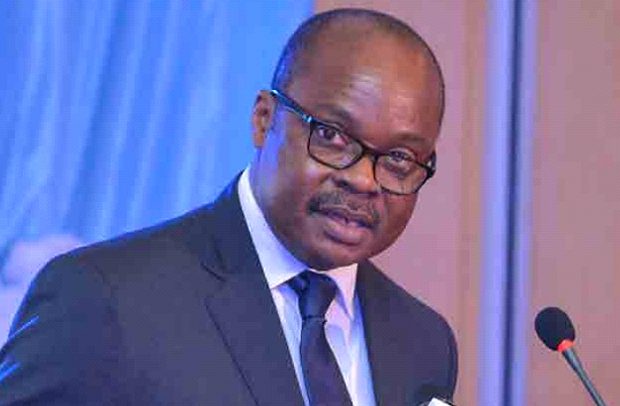Dr. Ernest Addison
MANAGEMENT OF the Bank of Ghana (BoG) has blamed former managers of the bank for supervising developments that led to the crisis that has rocked the country’s banking sector in recent times.
BoG’s management was reacting to certain statements made by a former Second Deputy Governor, Dr. Johnson Asiama, recently on Accra-based Joy FM with regard to some of the collapsed banks. Dr. Asiama accused the central bank of opting for an expensive offer to save ailing banks while better offers were rejected.
Reasons for blaming former management
Reacting to the statement in a press release dated August 23, 2019 the BoG stated: “…. The then management of the Bank of Ghana failed to implement these actions that would have halted the eventual collapse of a multitude of financial institutions.”
“To the contrary, the then management of the Bank of Ghana turned the other eye, while loading the insolvent banks with massive amounts of liquidity support including by passing such liquidity support through other banks as conduits, and taking no steps to ensure that such support was used for the benefit of providing liquidity to depositors,” it averred.
“What Dr. Asiama conveniently fails to state is that steps to hold these failed institutions accountable started when Dr. Addison was appointed Governor in April 2017. The final determination to resolve the two banks was made at the end of July 2017 and executed in August 2017,” it added.
Further insight
The BoG further explained that when wind of the Bank of Ghana’s impending action became rife, three banks, namely GCB, Republic Bank Ghana Ltd. (and its parent company, Republic Bank Holdings), and a Moroccan bank, submitted bids to the Bank of Ghana to be allowed to acquire the good assets and deposits of the two banks after the revocation of their licences.
However, “The Bank of Ghana’s decision to accept the bid submitted by GCB Bank was based on a number of important considerations including: (i) its indigenous ownership, so that two Ghanaian banks were not being given to foreign owners; (ii) the relatively higher values it placed on the net assets of the two banks; (iii) its commitment to maintaining a relatively greater number of branches and employees of the two banks; (iv) its vast physical presence across the country to ensure that the customers of the two banks had access to its strong branch network and (v) its relatively stronger capital position which would allow it to better absorb any shocks from the acquisition,” it explained.
No better proposals
Besides, BoG averred: “It is also instructive to note that Dr. Asiama was Deputy Governor at the time when the decision was taken to revoke the licences of UT Bank and Capital Bank, and had every opportunity to propose any other strategy for addressing the insolvency of the said banks if he felt there was a better and more effective strategy. His approach before the new management team took over was simply to do nothing in the interest of depositors and the financial system as a whole, and to rather dole out large amounts of public funds to failed institutions whose shareholders dissipated these funds on private ventures at the expense of depositors, employees, tax payers, and other claimants. The claim that the approach to resolving the two banks resulted in the distress of the savings and loans and microfinance sectors is pathetic, to say the least.”
Dr Asiama’s reaction
Dr Asiama has explained that there was a roadmap (or strategy) for the recapitalization banks and withdrawal of liquidity and hence these should have been followed.
“I suggested for example that if Unibank’s claims on government were paid early in 2017, we could have prevented the daily clearing failures that persisted and worsened the early redemptions and withdrawal of deposits.”
BY Samuel Boadi


